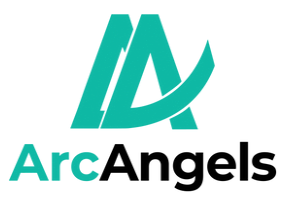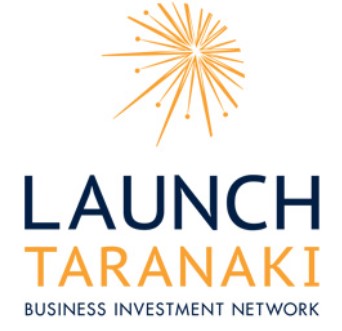New Zealand Angel Investment Directory and How to Raise Money
This guide explains how angel investing works, why you should consider angel investment to fund your startup, and the best strategies to successfully raise money from angel investors
Updated 16 March 2022
Summary
Our guide covers:
Know This First: There is a Wide Variance in Angel Investing Experiences and Results
- When first starting a business, it can be challenging for founders to fund the business alone. If you or your co-founders have limited available cash, it may be difficult to lease out office space, develop your product or research your market.
- This is where angel investing can come in. Angel investing is an alternative (or can be supplementary) to "bootstrapping" (funding a startup using your own cash).
- This guide is intended to be read from the perspective of the startup founder rather than the investor. The views expressed in this article are drawn from investing experience – and it has been tailored to suit and benefit the team raising capital.
- Our Angel Investing guide (LINK) focuses on anyone looking to become angel investors and critically evaluating startups as part of the process.
Our guide covers:
- What Is Angel Investing?
- Angel Investors - The Definitive New Zealand Directory
- Why Would I Take Angel Investment? The Pros and Cons
- How do I Pitch to Angel Investors?
- Frequently Asked Questions
- Key New Zealand Angel Investing Trends
Know This First: There is a Wide Variance in Angel Investing Experiences and Results
- Out of all the different stages of investing, Angel Investing is by far the most volatile.
- The variance in each angel group and individual experience with angels will vary widely – this guide is meant to give the reader generalist information that will apply to angel investing as a whole.
- The experience you may have with angel investing can be in stark contrast to this, depending on which angels you pursue for investment.
What Is Angel Investing?
Angel investors are typically high net worth individuals who invest in startups at the earliest stages of its lifecycle. For their investment, they get equity ownership in the startup with the idea to exit within 7-10 years.
Know This:
Examples of Angel investors include family, friends, colleagues, current or exited entrepreneurs, individual angel investors or angel groups.
Know This:
- Once the investment is completed, they will typically work with the startup founders to scale the business and advise them on any roadblocks they encounter.
- If the startup is successful, the angel gets a return on their equity.
- If the startup doesn't succeed, the angel investor likely loses their money in the startup.
Examples of Angel investors include family, friends, colleagues, current or exited entrepreneurs, individual angel investors or angel groups.
What is the typical Angel Investor Cheque Size?
The money invested by angel investors varies greatly depending on the startup's attractiveness. The market it operates in and the angel investor's own preferences. In general, most individual investments are between $10,000 to $100,000. A typical angel investment round might be $100,000 - $250,000 raised from 5 different angel investors. On rare occasions, angel investments can get to higher sums ($1m+) depending on the number of angels syndicating or level of conviction from specific angels.
What is the Ideal Angel Investor Stage?
Angel investors typically invest early on in a company's lifecycle. Angels commonly invest where the startup is just in idea form (known as Proof of Concept) or when the company is in the early stages of selling their product or service (Pre-Seed). At this point, the startup will likely lack customers or revenue.
Angels typically invest first (after friends, family and the founders). For this reason, the "bar" is generally set relatively low, and angel investors can be reasonably lenient on things like milestones, metrics and the holistic status of the business. Angel investors will be looking for the POTENTIAL for the founding team, product or market to thrive in their desired space.
Angels typically invest first (after friends, family and the founders). For this reason, the "bar" is generally set relatively low, and angel investors can be reasonably lenient on things like milestones, metrics and the holistic status of the business. Angel investors will be looking for the POTENTIAL for the founding team, product or market to thrive in their desired space.
What is the typical valuation I should be raising an angel round on?
The valuation at the time angel investors invest is typically single-digit ($1-9m), with startups valued between $1m to $4m as the most common. In light of this, the valuation of the business has less emphasis at this stage of the company. Angels don't place a lot of importance on valuation compared to what some institutional investors (VC, Private Equity) may put on it. Instead, the focus is much more honed on the company's future and what the startup COULD be worth in the future.
Where do I find Angel Investors?
Typically, NZ angel investors will invest through a nominee structure (e.g. they will pool their money together to invest). This means that you may have 10-20 angel investors, each chipping in $10,000 each to participate in a round totalling $100,000 to $200,000. Not only does this allow the founder to pool more money together, but it also allows the angel investors to syndicate the risk among multiple people, rather than getting one angel investor to put down $200,000 and potentially lose it all on one investment.
Angel Investors - The Definitive New Zealand Directory
Angel Association New Zealand (AANZ)While technically not an Angel Investor, AANZ aims to increase the quantity, quality and success of angel investment in New Zealand with the ultimate goal of creating a greater pool of capital for innovative startup companies. AANZ act as the connector for all the different regional angel networks.
Website: Angel Association |
Ice Angels (based out of Auckland)ICE Angels is New Zealand's top angel network, with over 100+ active members. ICE Angels support and invest in top tier teams taking advantage of global opportunities. Founded in 2003, the ICE Angels have invested $65m+ into 100+ companies, including investments in 8i, 90 Seconds and Crimson Education. Their portfolio includes many different industries, including VR, software, cleantech, health tech, biotech and high tech manufacturing. The ICE Angels raised multiple funds that enable investors to diversify and learn from their portfolio and enrich the angel investing experience for their members.
Website: Ice Angels |
Arc Angels (based out of Auckland)The Arc Angels were founded in 2013 and are a dedicated investment fund (run by Icehouse Ventures) that invests in early-stage businesses managed, founded or led by women across New Zealand. Arc Angels has 50+ members and looks to inspire other angel investors. Icehouse Ventures run Arc Angels - arguably one of the most recognisable brands in the early-stage space. We believe Icehouse is the leading startup network in New Zealand (determined by the number of deals and exits they've participated in). They syndicate investments with High Net Worth individuals and run several initiatives over and above their angel network.
Website: Arc Angels |
K1W1 (based out of Auckland)K1W1 is an angel investment group backed by Sir Stephen Tindall. It has invested $100M+ into many New Zealand startups and early-stage seed and VC rounds from biotech, high tech, software, environmental technology and other high growth potential businesses. Alongside returns, the aim is to assist young entrepreneurs looking to develop entrepreneurial and innovative culture into New Zealand and generate social impact and employment in the process.
Website: K1W1 Angels |
Flying Kiwi Angels (based out of Auckland)Flying Kiwis (FKA) comprises 50 investors spread across NZ and some in the US, UK, and Germany. They like to engage early with founders through founder clinics which they run all over NZ. Once a company gets through DD, they'll go out to their angel networks to identify who would like to participate. Due diligence is comprehensive and constructive, which they split up amongst their angel members. Portfolio companies get ongoing support from the whole FKA network.
Website: Flying Kiwi Angels |
Enterprise Angels (based out of Tauranga)Since launching in 2008, Enterprise Angels has invested in over 60 early-stage investments totalling $24m+, whilst deploying capital across a wide variety of industries (SaaS, Agritech, Deep Tech). With almost 200 members, Enterprise Angels have one of the largest angel membership bases in New Zealand. Enterprise Angels have also launched AngelEquity – an online wholesale investor platform that improves overall access to the angel investing process. Past investments have from Enterprise Angels have included Cogo, Engender, Vidapp, Greenbutton, Swipedon and Fuel50.
Website: Enterprise Angels |
Angel HQ (based out of Wellington)Angel HQ was founded in 2007 off the back of the economic development agency (Grow Wellington). Angel HQ has 100+ members and has invested $14m+ in over 50 companies of different industry, size and founder composition. Angel HQ is known for being a tight-knit community of active members. While technology is one of their preferred areas of investment, they have invested in many other areas.
Website: Angel HQ |
Canterbury AngelsCanterbury Angels is a relatively new angel investment network, being formed in the last five years. Canterbury Angels is one of the most recent angel networks to be formed in New Zealand. Canterbury Angels supports aspirational young companies with support and investment to meet their high growth targets while attempting to generate a strong return for the angel investors in the group. Canterbury Angels are known to invest in a wider mandate than just technology investments.
Website: Canterbury Angels |
Mainland Angel Investors (based out of Queenstown)Mainland Angel Investors (MAI), Startup Queenstown Lakes Trust, COIN South and Startup Dunedin Trust have merged to form the MAI Collective. MAI provides south island angel investors with a place for startups and local angels to come together and support each other (whether advice or money).
Website: Maniland Angel Investors |
Angel Investors MarlboroughAngel Investors Marlborough (AIM) is the newest angel network in New Zealand, starting in late 2017. AIM was established to raise awareness about the capital markets and educate as many people as possible. They focus on early-stage investment and support early-stage founders and the wider community – ideally leading to prosperity in the Marlborough community.
Website: Angel Investors Marlborough |
MIG Angels (based out of Palmerston North)As one of New Zealand's more experienced angel groups, MIG Angels have invested more than $10m in 20+ companies deployed out of their last two funds over the previous ten years. Palmerston North's The Factory manages MIG Angels. MIG focuses on high growth seed companies, with a strong focus on agritech investments.
Website: MIG Angels |
Nelson AngelsNelson Angels are a group of angel investors focusing on the Nelson and Tasman regions. They typically invest in high growth startup companies focused on life sciences, agritech, and cleantech.
Nelson Angels is one of New Zealand's founding angel networks with a solid angel base of experienced investors with experience in both hardware and software investments. Nelson Angels focus heavily on the characteristics of the founders. Website: Nelson Angels |
Launch TaranakiLaunch Taranaki was formed in 2016. Launch Taranaki is a business development-focused network created to enable and encourage the success and development and entrepreneurs and startups in the Taranaki region. The network is small but has a very experienced membership base that adds key value to startups in the Taranaki region.
Website: Launch Taranaki |
Why Would I Take Angel Investment? The Pros and Cons:
There are several advantages to taking investment from angels as opposed to other sources (Venture Capital, bank funding, crowdsourcing etc.):
Pros:
1. Speed
If an angel investor likes a company or an idea, they can move relatively quickly from decision to payment. Unless investing through a syndicate, they don't have to cross-check their decisions with other stakeholders (committees, boards, etc.). Payment can come as quickly as a few hours once a decision has been made.
2. Experience
Angel investors come from all different types of backgrounds. If they're investing in your startup, they likely have experience in your sector or have knowledge they can share with you to help you navigate the complex issues you may have. Compared to other startups without angel investment, this may give you an edge.
3. Ability to actively participate
Angel investors typically want to help as much as they can, given your success is their success. As a result, angels are quick to provide support and advisory where possible.
4. Independence
Angel investors typically don't take board seats or have egregious terms for future funding rounds. Most of them keep it simple, focusing more on equity percentages or board observer seats. They tend to be more 'hands-off' typical VC investors, giving founders more independence around strategy, hiring and product development.
5. Flexible Funding
Angel investors are relatively flexible when it comes to term sheets and the cap table. The majority will support having other investors on board and see it as a sign that more investors can support future rounds. Angels typically recognise that founders need high ownership levels to be incentivised to continue building the business – especially in the early years.
Cons:
There are some critical crawbacks of taking angel funding. While angel investment has some key advantages, there are some notable downsides of angel investment:
1. Control
Although you still have a significant amount of freedom with angel investors (compared to the likes of VCs), you may still lose some control – some angel investors will take board seats, others will have relatively stringent board reporting requirements.
2. Pressure
The pressure to perform will likely increase. Before the angel round, the only pressure came from the founders themselves. Now that another investor is on board, the business will have to be monitored through KPIs, and reviews will take place more frequently. While this is a burden on the team, it can be a positive thing – the purpose of these reports is to track the business over time and identify where improvements can be made.
3. Dilution
While dilution may seem small in the angel round, as the startup raises more and more funds, the initial ownership can drop relatively quickly (especially after a few VC rounds). Institutional VC investors may expect a certain founder ownership percentage to ensure the founders are motivated to see the company through to the end. If angel investors have taken a significant portion, this could impact further capital raises.
Pros:
1. Speed
If an angel investor likes a company or an idea, they can move relatively quickly from decision to payment. Unless investing through a syndicate, they don't have to cross-check their decisions with other stakeholders (committees, boards, etc.). Payment can come as quickly as a few hours once a decision has been made.
2. Experience
Angel investors come from all different types of backgrounds. If they're investing in your startup, they likely have experience in your sector or have knowledge they can share with you to help you navigate the complex issues you may have. Compared to other startups without angel investment, this may give you an edge.
3. Ability to actively participate
Angel investors typically want to help as much as they can, given your success is their success. As a result, angels are quick to provide support and advisory where possible.
4. Independence
Angel investors typically don't take board seats or have egregious terms for future funding rounds. Most of them keep it simple, focusing more on equity percentages or board observer seats. They tend to be more 'hands-off' typical VC investors, giving founders more independence around strategy, hiring and product development.
5. Flexible Funding
Angel investors are relatively flexible when it comes to term sheets and the cap table. The majority will support having other investors on board and see it as a sign that more investors can support future rounds. Angels typically recognise that founders need high ownership levels to be incentivised to continue building the business – especially in the early years.
Cons:
There are some critical crawbacks of taking angel funding. While angel investment has some key advantages, there are some notable downsides of angel investment:
1. Control
Although you still have a significant amount of freedom with angel investors (compared to the likes of VCs), you may still lose some control – some angel investors will take board seats, others will have relatively stringent board reporting requirements.
2. Pressure
The pressure to perform will likely increase. Before the angel round, the only pressure came from the founders themselves. Now that another investor is on board, the business will have to be monitored through KPIs, and reviews will take place more frequently. While this is a burden on the team, it can be a positive thing – the purpose of these reports is to track the business over time and identify where improvements can be made.
3. Dilution
While dilution may seem small in the angel round, as the startup raises more and more funds, the initial ownership can drop relatively quickly (especially after a few VC rounds). Institutional VC investors may expect a certain founder ownership percentage to ensure the founders are motivated to see the company through to the end. If angel investors have taken a significant portion, this could impact further capital raises.
Choosing the Right Angel Investor
Ideally, you would look to take on funding from an angel investor who understands your market and can provide critical advice and feedback to improve your business offering. Not only that, but the inter-personal dynamic between the founder and angel investor is also important. A few things to note when picking an angel investor:
- Understand the Angel Investor's track record and past investments
- Look for complementary personalities to your own (airport test etc.)
- Find out the preferred level of business involvement
- Capacity to follow-on after the angel round (some angels have a one and done model where they won't support in subsequent rounds)
- Quality of the angel investor's network/contacts and access to investors
- General holistic business reputation
How do I Pitch to Angel Investors?
The top considerations to take into account when pitching to angel investors are as followed:
1. Refine your pitch
If you're pitching to angel syndicates, you're likely going to have to do multiple pitch nights. Practise your spiel until you can explain your business plan clearly and succinctly.
2. How much funding do you need – and why?
Be specific in your capital target and use of funds – try not to take random round numbers out of the air.
3. Be open and honest
Angel investors are likely able to see through any uncertainties in your pitch. They will likely ask about these uncertainties in due diligence or questins and answers. Be honest about what you don't know and the risks, as this will likely show you understand the business and market you operate in. Angels may be able to help you deal with these problems (and they may be intrinsic in your industry anyway, which angels will take into account). Remember – no startup is perfect when they raised their rounds – problems and risks are normal.
4. Be prepared for questions
Nobody likes losing money – least of all angel investors. Your startup will be carefully examined, and every assumption questioned. The angel investor will ask many questions to gauge whether your idea, your team and your target market align enough to succeed in a world where many don't. As such – be ready to answer a lot of questions (some that are quite tedious).
5. Negotiate terms
Remember that this is your startup, your vision and your idea. If this is your first formal funding round (mum and dad don't count!), you will have to get comfortable asserting your non-negotiables and what you expect from the deal. Loss of ownership is inevitable when you raise capital but keeping it at a reasonable level is extremely important for the company's future. Top terms that get negotiated include ownership percentage. Investment type, board seats and share type.
6. Get an Advisor
Whether analysing term sheets or side letters, it's valuable to get legal and/or financial Advice – so try to talk to business partners and advisors. You must understand the options before signing anything – contracts can be structured in many different ways.
7. Check with another party
Before signing legal documents, check with another party to make sure you're not missing anything. Get a second opinion. If you're connected with other founders who have raised capital before, or you know of VC analysts - don't be afraid to reach out and ask for help.
1. Refine your pitch
If you're pitching to angel syndicates, you're likely going to have to do multiple pitch nights. Practise your spiel until you can explain your business plan clearly and succinctly.
2. How much funding do you need – and why?
Be specific in your capital target and use of funds – try not to take random round numbers out of the air.
3. Be open and honest
Angel investors are likely able to see through any uncertainties in your pitch. They will likely ask about these uncertainties in due diligence or questins and answers. Be honest about what you don't know and the risks, as this will likely show you understand the business and market you operate in. Angels may be able to help you deal with these problems (and they may be intrinsic in your industry anyway, which angels will take into account). Remember – no startup is perfect when they raised their rounds – problems and risks are normal.
4. Be prepared for questions
Nobody likes losing money – least of all angel investors. Your startup will be carefully examined, and every assumption questioned. The angel investor will ask many questions to gauge whether your idea, your team and your target market align enough to succeed in a world where many don't. As such – be ready to answer a lot of questions (some that are quite tedious).
5. Negotiate terms
Remember that this is your startup, your vision and your idea. If this is your first formal funding round (mum and dad don't count!), you will have to get comfortable asserting your non-negotiables and what you expect from the deal. Loss of ownership is inevitable when you raise capital but keeping it at a reasonable level is extremely important for the company's future. Top terms that get negotiated include ownership percentage. Investment type, board seats and share type.
6. Get an Advisor
Whether analysing term sheets or side letters, it's valuable to get legal and/or financial Advice – so try to talk to business partners and advisors. You must understand the options before signing anything – contracts can be structured in many different ways.
7. Check with another party
Before signing legal documents, check with another party to make sure you're not missing anything. Get a second opinion. If you're connected with other founders who have raised capital before, or you know of VC analysts - don't be afraid to reach out and ask for help.
Frequently Asked Questions
For any specific investment question, we suggest talking to the Angel network you plan to approach. Our list below addresses common queries about angel investing as a concept.
How Can I Find the Best Advice for Getting Angel Investment?
Talk to as many angels (and angel networks) as you can. The more angel syndicates you talk to, the more widely circulated your company becomes and the more likely you are to get funding. In the early stages of the capital raise - it can be hard to gauge interest, and companies are unlikely to have solid metrics to support your arguments. A significant portion of seed investing will come down to the size of the potential market is and how high quality the angel investors think the founding team are. Make sure you nail the pitches.
What's the difference between raising an angel round versus a pre-seed / seed round? Which one is better?
It's mostly semantics. Definitions can vary, but in general, what happens in an angel round mirrors that of a pre-seed round. Seed rounds can be slightly differentiated in that the Minimum Viable Product (MVP) may have been developed or the investors become a little more sophisticated (seed VCs) – but the general gist is the company has a large number of unknowns and risks that are to be worked out.
Is there a Difference Between Angel Investors and Venture Capitalists?
Angel investors and VC investors have similar investment styles. They both make investments into high growth companies at the early stages and focus on a small portfolio that will outperform the rest of their companies.
Angel investors will invest from their balance sheets, versus VCs who typically raise funds through an LP-GP model and deploy from there. The size of the investments also matters – with angels only investing in the pre-Series A rounds. VCs are likely to have much bigger funds (some with billions of dollars), meaning VCs can invest in later companies (Series B+).
Angel investors will invest from their balance sheets, versus VCs who typically raise funds through an LP-GP model and deploy from there. The size of the investments also matters – with angels only investing in the pre-Series A rounds. VCs are likely to have much bigger funds (some with billions of dollars), meaning VCs can invest in later companies (Series B+).
Key New Zealand Angel Investing Trends
Angels like Syndicating
Angel Investors Can Vary Significantly
- Similar to the lemming-style investing that VCs take, angel investors like to syndicate risk and invest together.
- Not only is this a good way for them to see more companies (stretch their money across more companies), but it allows them to interact and connect with their community, rather than being the sole investor on a startup.
- While a generalisation, Angel Investors are typically more advanced (50+ years) given the need for large pools of capital required (if you're putting $100,000 to $200,000 into startup companies, your Net Worth will likely need to be at least $2m to 3m+ to feel comfortable with this.
- Such wealth is unlikely to be generated in the first twenty years of people's careers – so logically, angel investors will be slightly older.
- One positive of angel investing is staying connected to the business and entrepreneurship communities when they may be retired and lacking purpose or connection to others.
Angel Investors Can Vary Significantly
- Some angel investors take a very hands-on approach with startups, while others have very little involvement.
- Be prepared for either zero support or micro-management when taking on angel investment.
Related Guides
Explainer Guides:
- How to Start a Business
- Raising Capital
- Product Market Fit
- Crowdfunding vs Bank Financing
- Blackbird vs Movac
- How to Become an Angel Investor
- Alternatives to VC Funding
- Hiring for a Startup
- VCFO (Virtual CFO)
- New Zealand Startup and Founder Incubators
- Expanding Offshore
- Invoice Templates
- Business Podcasts
Explainer Guides:




















